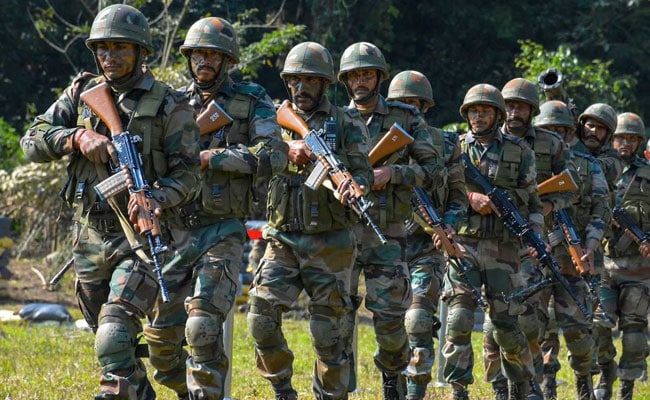
After Nepal decided to skip the first ever BIMSTEC military exercise in India, its newly appointed Army Chief Purna Chandra Thapa has declined an invite by the Indian Army to attend a conclave of army chief's of the grouping on September 16, official sources said.
The militaries of BIMSTEC member nations, barring Nepal and Thailand, began a week-long anti-terror exercise at Aundh near Pune on Monday to enhance cooperation in dealing with the challenge of terrorism in the region.
Each participating country has sent its troops as well as a three-member team as observers. Though Nepal and Thailand are not participating in the exercise, both the countries sent observers for it.
The Indian Army has organised a conclave of army chiefs of the participating countries on September 16, and barring Nepal, all the countries have accepted the invitation.
They said Nepal's Gen. Thapa conveyed to the Indian Army his inability to attend the conclave as he has prior engagements including ceremonial events to attend in his country, the sources said. Gen. Thapa was sworn in as Nepal's Army Chief on Sunday.
The development comes in the backdrop of China's growing overtures towards Nepal for deeper economic and security cooperation. Last month, Nepal had announced that it would participate in a military exercise with China.
The sources said hat Thailand conveyed to India that it will send a senior military official to attend the conclave.
The BIMSTEC is a regional grouping comprising Bangladesh, India, Myanmar, Sri Lanka, Thailand, Bhutan and Nepal. The grouping accounts for 22 per cent of the global population, and has a combined gross domestic product of USD 2.8 trillion.
Indian Army officials said the exercise is focused on boosting inter-operability among the forces and exchanging best practices to contain terror-related activities.
They said the long-term goal of the initiative is to explore possibility of creating a viable regional security architecture to deal with the challenge of terrorism and transnational crimes.
The exercise is taking place nearly two weeks after leaders of the BIMSTEC (Bay of Bengal Initiative for Multi-Sectoral Technical and Economic Cooperation) countries, in their summit talks in Kathmandu, resolved to join hands to combat the scourge of terrorism effectively.
India has been pushing for making the BIMSTEC a vibrant form for regional collaboration as cooperation under the SAARC (South Asian Association of Regional Cooperation) framework was not moving forward.
Citing continuing support to cross-border terrorism from Pakistan, India has been maintaining that it was difficult to proceed with SAARC initiative under current circumstances. BIMSTEC excludes Pakistan.
During the Kathmandu summit, the leaders deliberated on a range of issues including ways to effectively deal with terrorism and radicalisation.
Track Latest News Live on NDTV.com and get news updates from India and around the world

